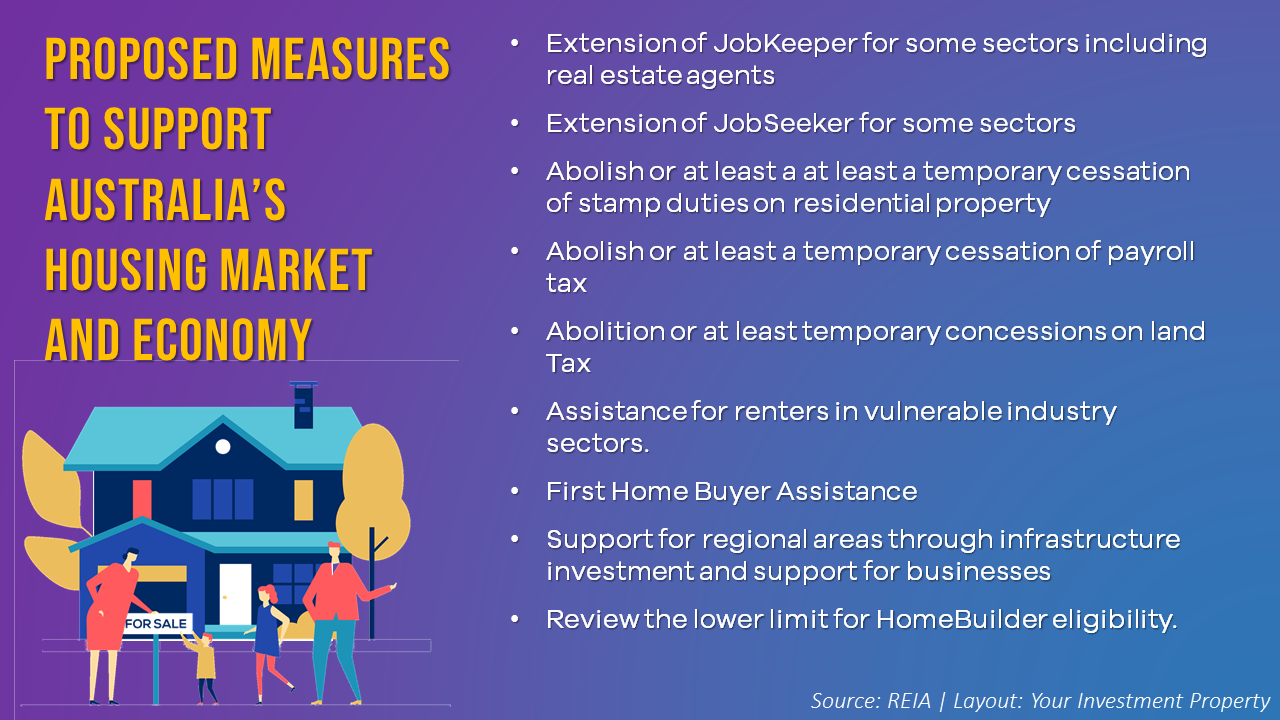The Real Estate Institute of Australia (REIA) has recommended nine policies that could help the housing market as it tries to recover from the impacts of the COVID-19 outbreak.
The nine policies were determined through a survey that asked respondents about what approaches could help achieve the government's objective of contributing to the economy and keeping as many Australians as possible employed.
Two of the suggestions involve the extension of JobKeeper and JobSeeker schemes for some sectors, particularly for the real estate industry.
The two schemes are slated to end in September. A recent poll by the Australian National University showed that more than half of all Australians believe that extending the JobKeeper and JobSeeker payments could provide support to the economy.
Also read: Support For Landlords During COVID-19
Another suggestion is to abolish, or at least provide temporary cessation of, stamp duties on residential property.
The Property Council of Australia recently recommended broad-based tax reform, which will include the abolition of stamp duty. Under the council's proposals, revenue from stamp duty could, instead, be sourced from broadening the goods and services tax (GST) base in the medium term.
Citing data from Deloitte Access Economics, the council said replacing stamp duty with a broader GST base could boost consumption by $6bn to $9.6bn per year.
REIA President Adrian Kelly said these measures would help boost the country's property industry, which has been the main driver of economic growth and increased employment.
"A healthy property sector has been a crucial support to economic growth over the previous three years," he said. "It stands to reason, then, that in these unprecedented times Government would consider a stimulus to the sector to boost expected low levels of unemployment and address growth in the Australian economy,"
The graphic below shows the other policies included determined in the survey:

